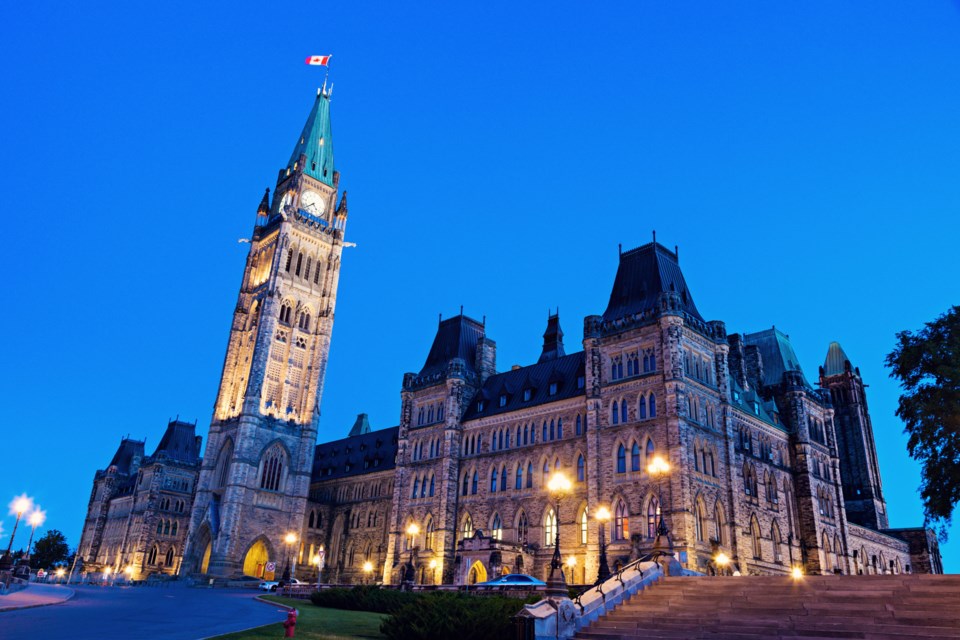Concerns are mounting that the delayed 2020 federal budget will include an increase in the capital gains tax on income-producing real estate. We contend that lowering the tax should be considered for owners of multi-family housing.
Originally scheduled for March, the 2020 federal budget has been delayed due to COVID-19. The pandemic has also caused the federal debt to increase exponentially, which will have a direct bearing on budget considerations.
As of March 31 2021, the projected federal debt will be $1.43 trillion, according to the federal government’s Economic and Fiscal Snapshot released on July 8, 2020. This debt level is unprecedented in Canada and should be considered astounding for a country with a population of less than 38 million.
The debt crater has deepened fears that the minority Liberal government will decide an increase in the capital gains tax would be a politically popular method to increase revenue. The current capital gains inclusion rate is 50%, making it one of the most efficient corporate taxes available.
The Liberal minority government can likely count on the support of both the NDP and the Greens. In the last election, the NDP campaigned on increasing the capital gains inclusion rate to 75%. This would raise an extra $8 billion in tax revenue in the first year alone, according to estimates from the federal parliamentary budget office. The Green Party has recommended that all capital gains be subject to taxation.
Canada first introduced a capital gains tax in 1972. The rate has remained unchanged since 2000, and is the 14th highest among the 34 member countries of the Organization for Economic Co-operation and Development in 2013.
Fears of an increase in the capital gains tax has been among the top five pre-federal budget predictions for decades, but this year the forecasts may be on the money, according to analysts, such as Wilmot George of CI Investments, Jason Heath of Objective Financial Partners, and Ian Russell of the Investment Industry Association of Canada.
In July 2020, a rumour ripped through Canada’s news media that the federal government was considering the first capital gains tax on the sale of private homes. The Canada Mortgage and Housing Corporation was quick to dismiss such fears, but suspicion remains. Raising the capital gains tax on commercial property, such as multi-family residential, appears less far-fetched.
“If push comes to shove in a minority government, where there is quid pro quo, where the NDP are prepared to support a high-tax, high-spend budget, the Liberals may be willing to sacrifice on capital gains [and raise the rate],” said Ian Russell.
One thing is certain: if the federal government decides to hike the capital gains tax, there will be no forewarning. That means it would almost certainly be sprung in a federal budget. Otherwise, owners would take immediate steps to reduce their exposure if they knew the higher tax was coming.
What is also certain is that any capital gains tax increase would be a blow to owners of multi-family residential property, a sector already subject to much higher taxes and regulation than any other commercial real estate sector.
In British Columbia, residential landlords can only raise rents just above inflation, pegged at 1.4% for 2021; office, industrial or retail landlords can raise rents to realistic market levels. Also, multi-family property is subject to the 20% provincial foreign-homebuyer tax, speculation tax, and other measures.
For most of 2020, all B.C. landlords have been forbidden to increase rents or evict tenants for non-payment. At the same time, costs for property taxes, hydro, water, insurance, and maintenance continue to increase. Despite this, many landlords have been quick to provide rent relief to their tenants during the pandemic. Rents in Vancouver, for example, have been reduced an average of 8% this year compared with 2019, according to a survey by Rental.ca and Bullpen Research and Consulting.
An increase in the capital gains tax would hammer B.C.’s multi-family landlords, the vast majority of whom are considered “mom-and-pop” investors, holding the small, older apartment buildings that constitute the bulk of the rental inventory. For these owners, the potential equity gain on their investment is the major impetus to ownership in the first place. A sudden tax hike could wipe out years, even decades, of price appreciation.
Raising the capital gains tax on multi-family property would also chill new construction of purpose-built rental units, just starting to recover after decades of slow growth.
Is an increase in the capital gains tax coming? No one outside the Prime Minister’s Office knows for sure. Our opinion is that after years of paying Canada’s highest real estate taxes, multi-family landlords instead receive a decrease in the capital gains tax for multi-family housing.
This would further incentivize owners to invest their hard-earned capital in this asset class – and create more vital rental stock. Only time will tell.
Mark Goodman and Cynthia Jagger are principals at Goodman Commercial Inc. and publishers of the Goodman Report
SWIM ON:
- In June, Mark Goodman and Cynthia Jagger noted that demand for multi-family rental properties continued to rise.
- In August, Puneet Sandhar argued that if you want to see systemic racism in action, just look at exclusionary zoning policies.
- In December 2018, UDI's Anne McMullin sat down with Rick Cluff to talk about the rental housing shortage, and what do do about it.



